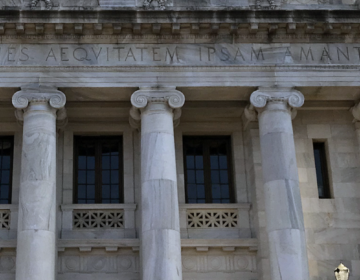Philly man freed after nearly 40 years in prison after murder conviction in 1984 fire is reversed
Harold Staten, 71, was convicted in 1986 of setting an early morning fire that killed a man in a north Philadelphia row house in October 1984.

(vladek/BigStock)
A man has been freed after spending nearly four decades in prison on a murder conviction in a 1984 Philadelphia fire attributed to arson under standards that prosecutors said would not support a conviction today.
Harold Staten, 71, was convicted in 1986 of setting an early morning fire that killed a man in a north Philadelphia row house in October 1984. Authorities said four men escaped by jumping from second-floor windows and Charles Harris later died of burns at a hospital. Staten was convicted of arson and second-degree murder and sentenced to life.
Assistant District Attorney Carrie Wood of the Philadelphia prosecutor’s office conviction integrity unit cited “substantial changes in fire science” and a report from a former federal agent and fire investigator that led officials to conclude that “there is little credible information that could stand up his murder conviction today.”
The Philadelphia Inquirer reports that after prosecutors on Monday cited flawed science and conflicting testimony in recommending reversal of the verdict, Common Pleas Court Judge Scott DiClaudio vacated Staten’s 1986 guilty verdict and ended his sentence of life in prison without possibility of parole.
Staten, who has spent more than half of his life in prison, burst into tears at the judge’s decision, lowering his face into his hands, the newspaper reported. His son, Harold DeBose, exclaimed “Alhamdulillah. Alhamdulillah,” an Arabic phrase meaning ”Praise be to God.”
DeBose, who was a teenager when his dad went to prison, said before his father’s release Monday night that he wanted his father to hug his granddaughter and his great-grandson, and then he wants to help guide him into a world that has changed so much during his decades in prison, the Inquirer reported.
The case was revived by attorneys for the Pennsylvania Innocence Project who cited advances in fire investigation technology. Prosecutors in Staten’s original trial alleged that he started the fire after a dispute, but a chemical analysis of samples taken from the home later showed no trace of accelerant.
District Attorney Larry Krasner said in a statement that “due to the passage of time, we unfortunately may never know how the fire began that killed Charles Harris nearly four decades ago.”

Get daily updates from WHYY News!
WHYY is your source for fact-based, in-depth journalism and information. As a nonprofit organization, we rely on financial support from readers like you. Please give today.




